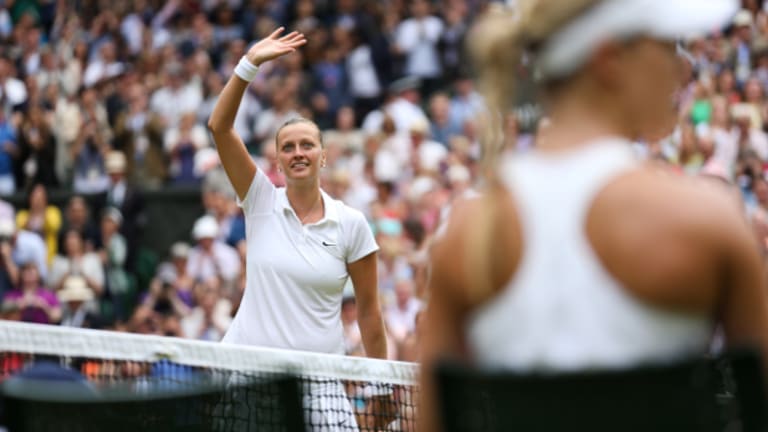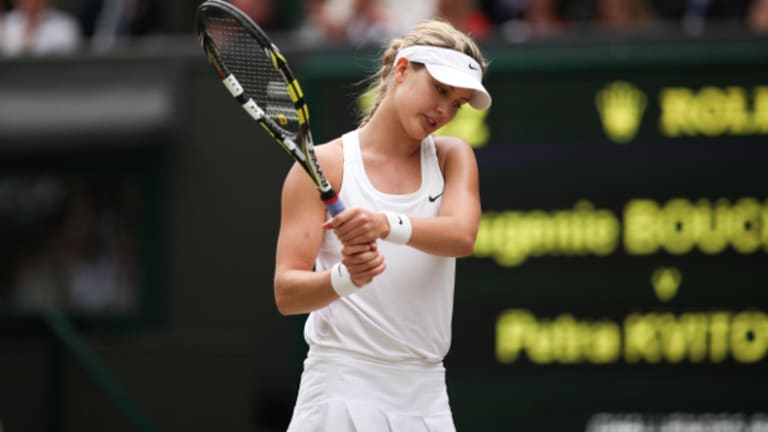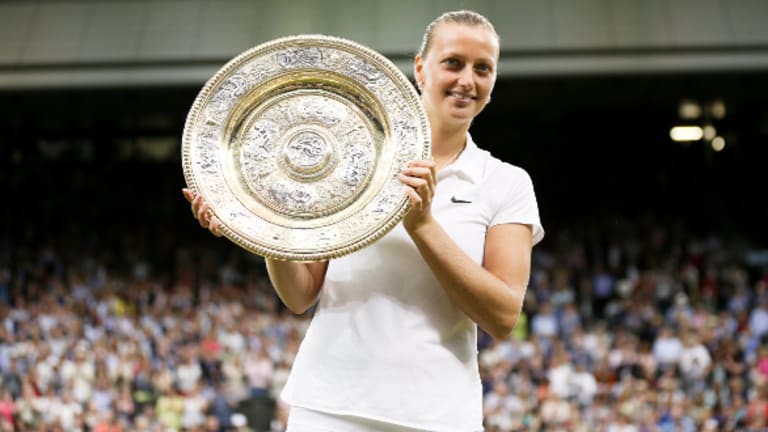WIMBLEDON, ENGLAND—If you flip through the record books, it’s possible to find a few Wimbledon finals that featured a performance like the one Petra Kvitova gave us on Saturday. Billie Jean King’s swan-song, 6-0, 6-1 drubbing of Evonne Goolagong at age 31 in 1975, and Pete Sampras’s three-set blitz of Andre Agassi in 1999 remain towering examples of tennis mastery. But while Kvitova isn’t in Pistol Pete's or BJK's league as a champion, she was their equal for a day—or at least for the 55 minutes she needed to beat Eugenie Bouchard, 6-3, 6-0. Kvitova's first shot was a thunderingly powerful forehand return that Bouchard couldn’t hit back. Her last was an even better backhand that Bouchard couldn’t even reach. Most of the the shots Kvitova hit in between were just as good.
“I knew from the first point what I had to do,” Kvitova said afterward. “I knew I had to push her, before she could push me. It wasn’t a big plan, I just knew I had to play my game."
By making it imperative that she go for her shots as soon as she could, Kvitova and her coach, David Kotyza, freed her up to play the type of overwhelmingly offensive tennis she had first shown the world here in 2011, and which she had repeated only intermittently since. This wasn’t P3tra, the doubting queen of the three-set match, the woman whose racquet runs hot and cold from one point to the next. This was Petra unleashed, liberated from worry, moving from strength to strength. Afterward, she could only explain her play by shaking her head and saying she was “in the zone.” Aces led to forehand winners, which led to backhand winners as her confidence grew, which then led to—and now she knew something special was happening—great defensive gets and winners on the dead run.
“I mean a few shots were really incredible,” Kvitova said, laughing, about her sudden, newfound ability to scramble. “I really couldn’t believe that I made it, actually....Really for the first time I said, ‘Oh my God, this is good!’ I can really run and put the ball back.”
Kvitova said she realized she was in the zone when she ran to her right and came up with a low, sharp-angled backhand pass to hold for 3-1.
“It was a really long shot,” she said, unable to suppress an ever-widening smile. “I did a passing shot. Was a huge rally. Maybe from that time I was like, ‘OK, that’s not normal.'”
The crowd, which was firmly with Bouchard—one London paper has already laid claim to the Canadian by calling her “practically British”—couldn’t help but roar for Kvitova after that winner. But even when the audience isn’t with her, Kvitova is one of those players—their numbers are legion—who feels like she’s coming home every time she steps onto Centre Court.
“I can say it’s a little bit like a Fed Cup [tie] when I’m playing in the Czech [Republic] and I feel the crowd,” she said of what she senses on Centre Court. “My stomach is a little bit funny. It’s just goosebumps.”


